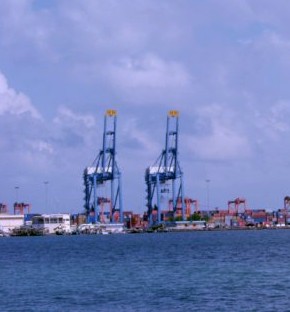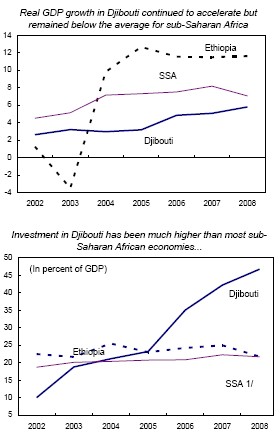|
Djibouti Economy - Development Djibouti port drives national growth
The latest analysis of the Djiboutian economy, published today by the International Monetary Fund (IMF), shows a diverse picture: While Djibouti is successful attracting foreign investments and lucky to draw on the boom in neighbouring Ethiopia, economic growth in the small Horn country just will not take off.
Foreign investments during the last years in particular have flowed into projects in mining, construction and energy. Also, recent investments in the Djibouti port trans-shipment business are starting to pay off. The Djibouti port, the leading in the African Horn region, indeed remains a main motor in the Djiboutian economy. The port sees a steadily increased traffic as its main hinterland, Ethiopia, lives through a substantial economic boom. Trade volumes and values are increasing from year to year, and the IMF foresees the Ethiopian economy to keep on expanding rapidly. Despite Djibouti's steady GDP growth, also in terms of GDP per capita, most Djiboutians however have not been able to improve their economic situation. Inflation has been growing, in particular food and energy prices, hitting the poor majority hard. The IMF talks about a "food and oil price shock on the population." Djibouti already has the second highest electricity tariffs in Africa, after Chad. Government's social spending also has declined, according to the IMF. This came as a consequence of a need to cut spending in general and the government wage bill in particular. By staff writer © afrol News - Create an e-mail alert for Djibouti news - Create an e-mail alert for Economy - Development news
On the Afrol News front page now
|
front page
| news
| countries
| archive
| currencies
| news alerts login
| about afrol News
| contact
| advertise
| español
©
afrol News.
Reproducing or buying afrol News' articles.
You can contact us at mail@afrol.com









